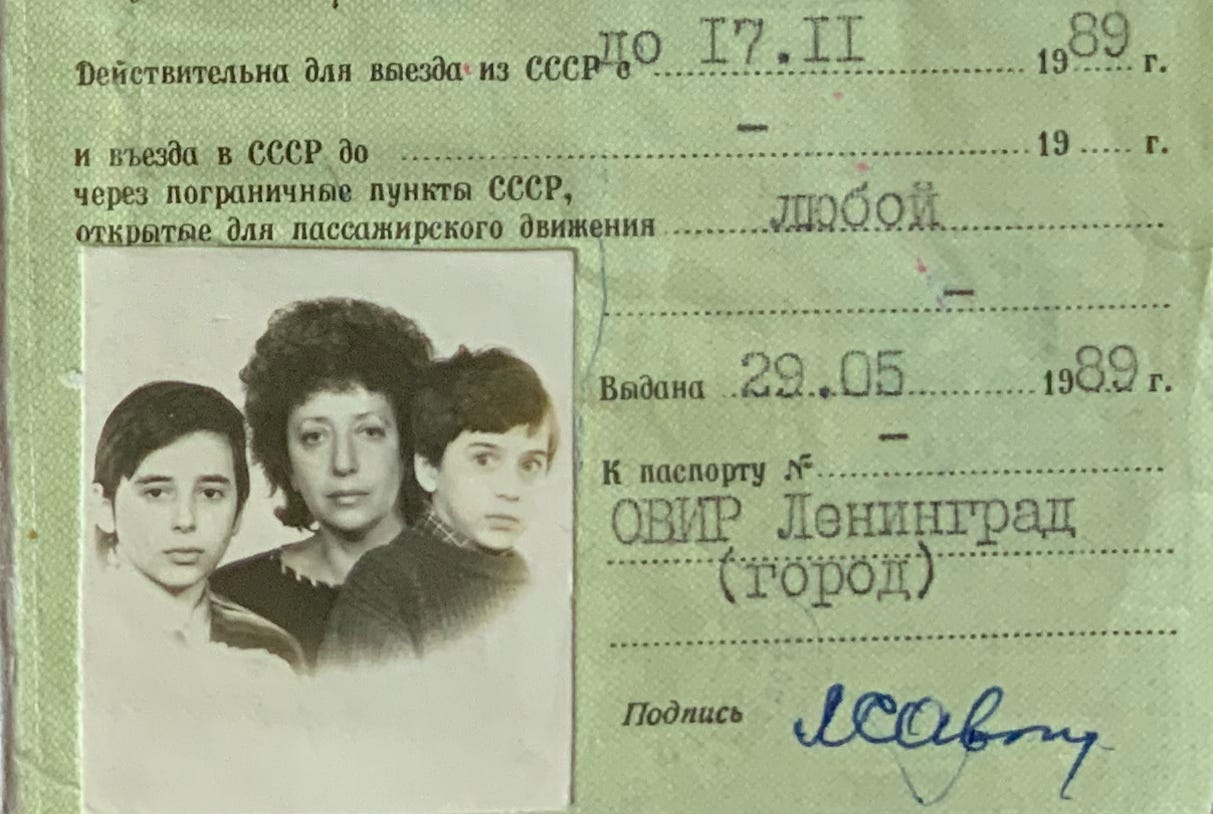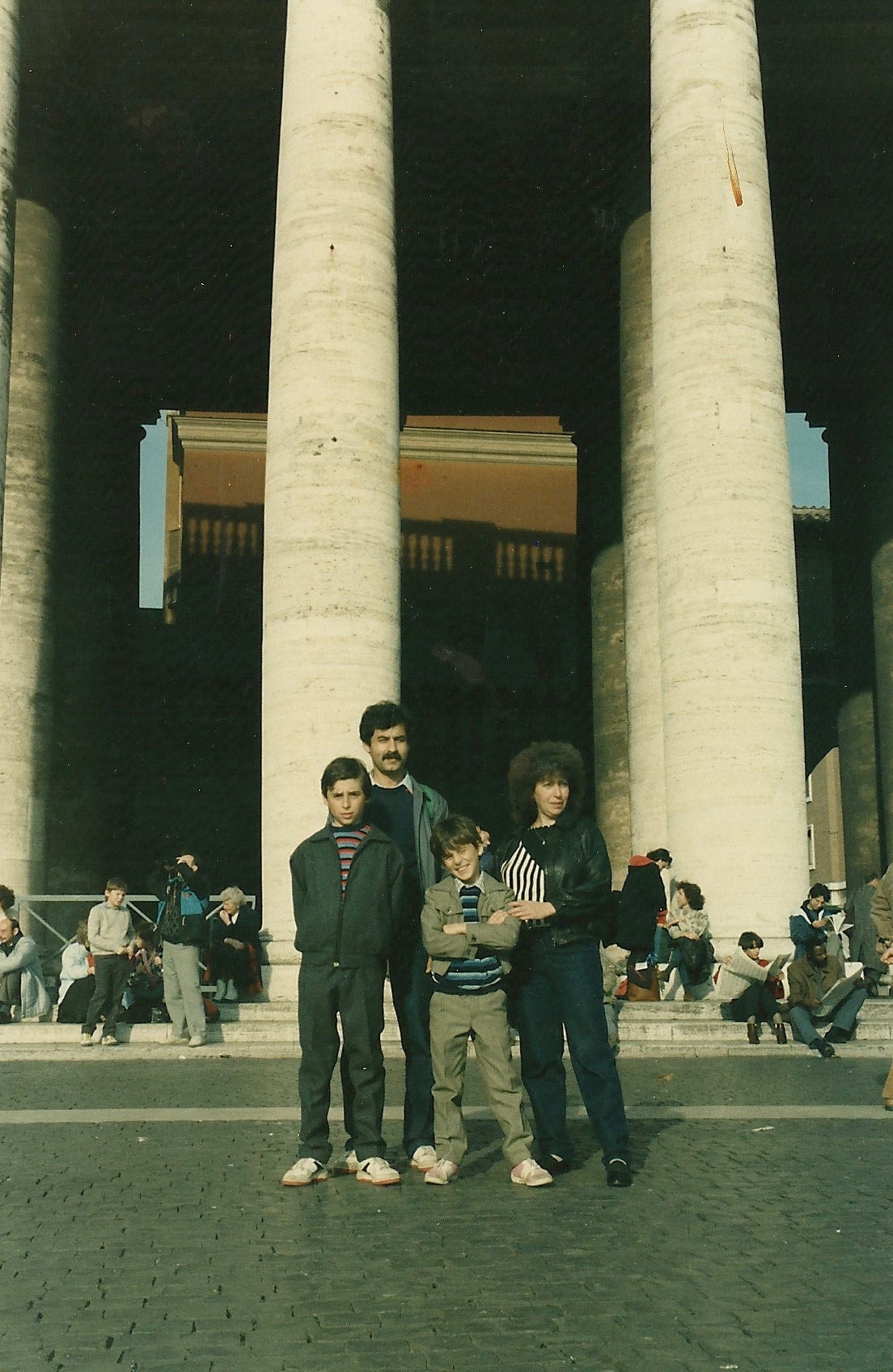America's ban on Soviet Jews
After years of bashing the USSR for its control of people’s freedom to move, the US did something very similar: in 1989 it massively restricted Jewish immigration. Jews were no longer welcome.
This is part five in my series about Soviet Jewish migration to Israel and America and the campaign to “save” us Soviet Jews from communist annihilation. Read previous installments and notes here.
It was the middle of September 1989 in Leningrad. I was eight years old. My parents — Nellie and Boris — had made their decision to abandon the Soviet Union a year earlier, but now they they finally had everything planned and ready to go.
They had their permission to leave from OVIR — The Office of Visa and Registration. They had their foreign visas all lined up. And they had our Aeroflot tickets, which were supposed to get me and my brother and them from Leningrad to Vienna and deliver us into the arms of American-Jewish organizations, which would then route us Italy, where we’d have to apply for refugee status and permission to permanently enter the United States.
The exit visa. That’s me, little Yakov, on the right. My big brother, Ilya, is on the left.
We were supposed to fly out on October 2, 1989. But two weeks before we left, my parents got some bad news.
They got wind of rumors circulating in Leningrad’s Jewish community that the United States was about to slam its doors shut on Jews like them. Word was being passed around that if we didn’t get out of the Soviet Union before October 1, 1989, America wouldn’t take us in anymore. We’d be forced to go to Israel, no matter where my parents actually wanted to go.
It seems that after years of bashing the Soviet Union for its evil restriction on people’s freedom to move, the United States was about to do the same thing: restrict Jewish immigration and ban the very people it had been working so hard to save from supposed communist annihilation.
My parents panicked. They didn’t speak Hebrew, but spoke English very well. And my father was afraid that if we were forced to go to Israel, he wouldn’t be able to find a job and the family would be plunged into poverty.
They wanted to go to America. So they scrambled to get out of Leningrad as soon as possible in order to beat the rumored deadline.
So they rushed back to Aeroflot, returned the plane tickets, and bought train tickets out of Leningrad, instead. Now we were scheduled to leave at the very end of September, which would put us ahead of the cutoff date by just a few days.
On September 29, 1989, we left Leningrad — first heading to Brest, then switching to a train for Warsaw, and then finally getting on a third train that took us to Vienna. A month later we were in a refugee camp in Ostia, Italy, waiting for authorization from U.S. immigration to enter the United States of America.
My family in our finest clothes on a day-trip we took to Rome from our refugee camp in Ostia, where we lived for six months while U.S. immigration officials to processed our request for political asylum. 1990.
I was eight at the time and I had no idea my parents were scrambling to beat America’s rumored ban on Soviet Jews. The only thing I knew was that we were suddenly leaving earlier than planned and that I had to give away my toys — including a construction set I liked very much — to a kid from the neighborhood I didn’t particularly like because my actual friend wasn’t around. I don’t remember this kid’s name, but I do remember — or at least I think I remember — that he was blond and had a sort of egg-shaped head. We weren’t friendly. In fact, he was a bit of a bully. But he was the only kid I could think of on short notice, so he was the guy who got the stuff. He was surprised when I rang the doorbell to his apartment and handed him a bunch of toys, saying something vague about moving away.
Only later did I hear my parents tell the story of having to suddenly scramble to get out of the Soviet Union. But I was never sure if what they had heard about the ban wasn’t just a paranoid rumor that was being passed around.
Looking at the historical record now, I can say my parents weren’t wrong back then. It wasn’t just a rumor. Indeed, they had very solid intel.
Not long after we left Leningrad, the United States did in fact shut its doors to the vast majority of Soviet Jews…
…This is a preview of a full letter that is only available to subscribers. To support my work and read the rest, sign up and read it here.
—Yasha Levine


